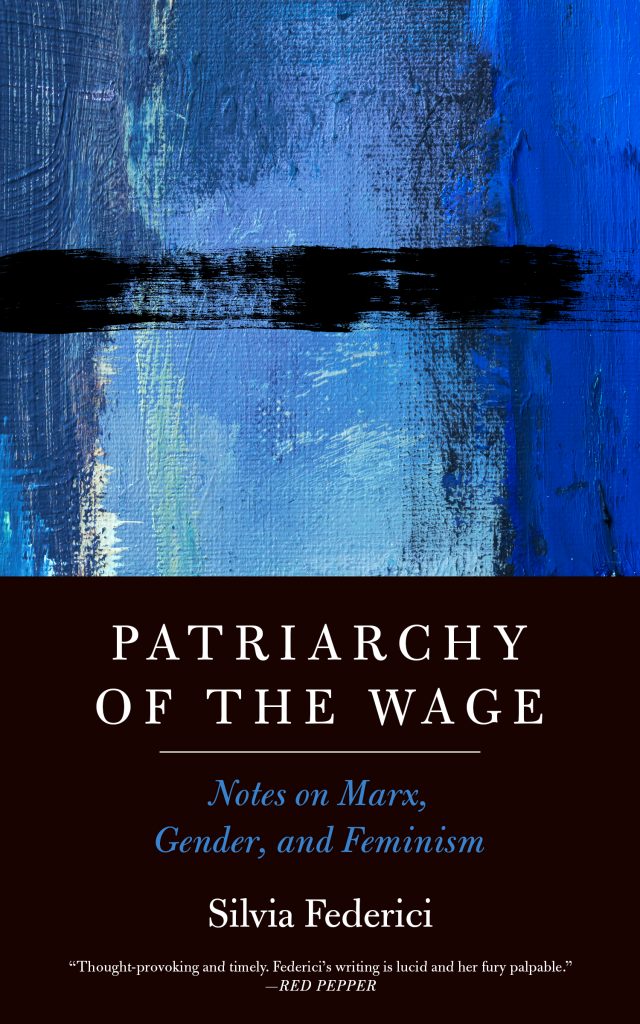Photograph Source: david__jones – CC BY 2.0
By Eve Ottenberg
Counterpunch
October, 8th, 2021
Genius that he was, Marx still was only human. His theories have lots of shortcomings that reflect his era. For instance, despite his disquisition on soil depletion due to capitalist agriculture, he did not emphasize enough the myriad ways capital poisons the earth. He believed that socialism would benefit from the “progress” of capitalism, a view overturned by the eco-disasters of the twentieth-century Soviet Union. He did not denounce colonialism sufficiently. He did not exhibit a profound, implication-grasping consciousness of racism, although of course he opposed and denounced it. He failed to appreciate the commons embraced by indigenous people around the world and how it could hem in capital’s global encroachments. And he was cool to feminism, not only taking domestic work for granted, but devoting little writing to the actual care and reproduction of the working class and the people, women, largely responsible for that reproduction.
What does Marx have to say to feminists? More to the point, what do feminists have to say to Marx? Well, quite a lot, as any reader of Sylvia Federici’s new book, The Patriarchy of the Wage, can tell you. Granted, a main reason Marx ignored domestic work was that in his time he saw women in factories toiling such long hours that they, in fact, did no domestic work. That changed later in the nineteenth century, as the ruling class became alarmed about the proles’ ability to reproduce themselves, something emaciated people, worked to death before age 30, with no time for childcare, no less breast-feeding, whose offspring starved on their pathetic diet of commercial elixirs, could not do. With the shift from light textile to heavy, iron and coal, industry, the bourgeoisie instituted the patriarchy of the wage, namely, booting women out of factories, shortening hours but intensifying the work and paying men enough to support a family. Thus the upper class reproduced its nuclear family model in the working class. In so doing, it lengthened some working-class lifespans and decreased infant mortality. So some might say that, oppressive as all this was, it became, objectively, an improvement. But not Federici.
In this new scheme, the thrifty housewife tended home, children and her husband’s sexual needs. This labor, done by half of humanity, escaped Marx’s notice – again, partly because, for a while, he had observed women workers not doing it. But domestic work and care-giving occupy billions of people. It is unwaged work, as was the plantation toil of slaves and much of the moil of campesinos in Latin America. As Federici argues, the white male working class, whose cause Marx championed, forms but a sliver of a much larger agglomeration of laborers who produce the goods and people our world depends on. And many of those laborers work for no pay.
“Our rejection of leftist ideology is one and the same as our rejection of capitalist development as a road to liberation,” Federici wrote in a 1970s article, included here, and thus disposing of old-school socialist and communist fetishization of capitalist technocracy. One need only survey the catastrophic ecology of the Soviet Union to realize that insofar as it mimicked capitalism, communism contributed to the destruction of a habitable planet. True, China recently combined capitalist structures with communism to lift 850 million people out of poverty in a short period of time, a world record, with which no one can compete. Also, the USSR arguably would not have crushed Nazism, had it not industrialized at a breakneck pace in the 1920s and ‘30s. So using aspects of capitalism for communist ends has its obvious pluses. But the minuses are also huge.
Take the nuclear family. “Far from being a precapitalist structure, the family, as we know it in the West, is a creation of capital for capital,” Federici writes. And what does this family, based on women’s work, do for capital? It “produces the most precious product on the capitalist market: labor power.” So ignoring unwaged women’s work, as the old left did and as the new left did also, before it yielded to a feminist hullaballoo, created a huge blind-spot in left analyses. It also seamlessly continued and extended the pernicious neglect of the feminine contribution to the world of work. “It’s no accident that we get the lowest paid jobs, and that whenever women enter a male sector, wages go down. Employers know that we are used to working for nothing.”
That work includes what Federici calls sex work, about which she has much to say that appears counterintuitive. In her convincing opinion, psychoanalysis “was born as the science of sexual control.” Federici has sharp words for Freud and other male theoreticians of female sexuality. Her generalizations are sharpest of all. “For the women of today,” she writes, “no less than for our mothers and grandmothers, sexual liberation can only mean liberation from ‘sex,’ rather than the intensification of sexual work.” Take that, Sigmund Freud! If that doesn’t throw cold water on male theories of female sexuality, I don’t know what will.
To return to Marx. Federici argues that he failed to see what she calls “the strategic importance” of reproductive work. This does not invalidate the truth of his analysis, insights and arguments, as far as they went. Federici simply argues they did not go far enough. And he made mistakes. “Today the miscalculation that Marx and generations of Marxist socialists have made with regard to the liberating effects of industrialization are all too obvious.” Their “Promethean view of technological development” leads to catastrophic climate change.
But that is not to ignore what’s valuable: “The Marx who most matters to us is the theorist of class struggle.” He may have missed that “domestic work, especially the care of children, constitutes most of the work on this planet,” but had he lived today, I find it hard to believe that Marx would have failed to connect feminism and historical materialism, or that he would have done anything besides champion the revolutionary insights of anti-colonialists like Franz Fanon. Though a man of his time, Marx, to use a term he would not have liked, transcended it far more than most. His theories and prescience still inform any left critique of society and economy that’s worth its salt, today, as they probably will tomorrow.
Eve Ottenberg is a novelist and journalist. Her latest book is Birdbrain. She can be reached at her website.
Silvia Federici is a feminist writer, teacher, and militant. In 1972 she was cofounder of the International Feminist Collective that launched the Wages for Housework campaign. Her books include Caliban and the Witch; Re-enchanting the World; and Witches, Witch Hunting, and Women. She is a professor emerita at Hofstra University, where she taught in the social sciences. She worked as a teacher in Nigeria for many years and was also the cofounder of the Committee for Academic Freedom in Africa.








